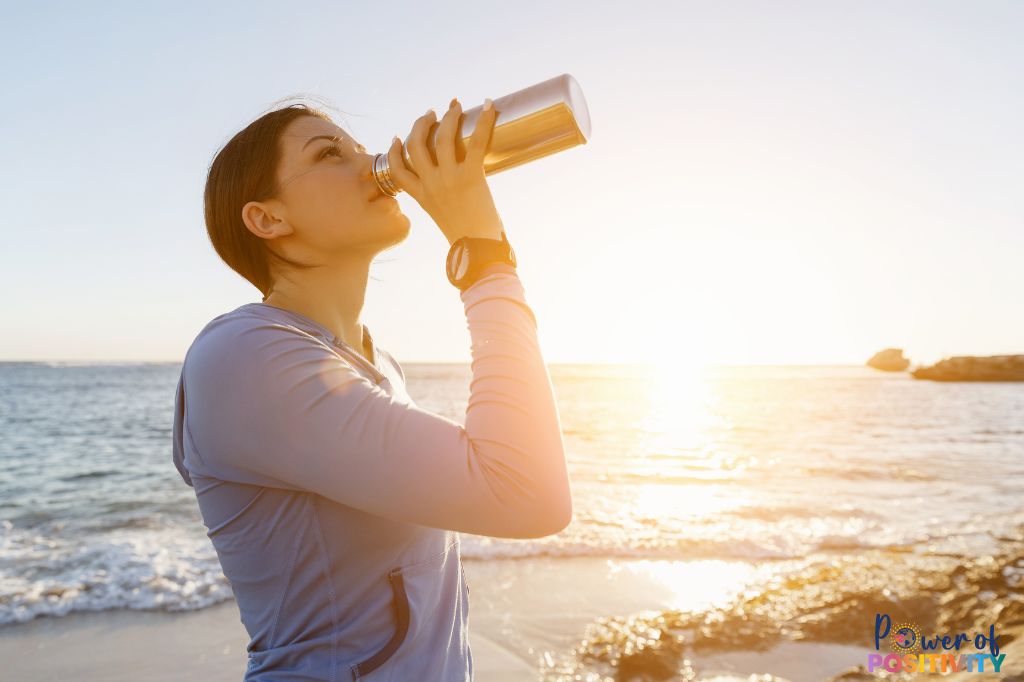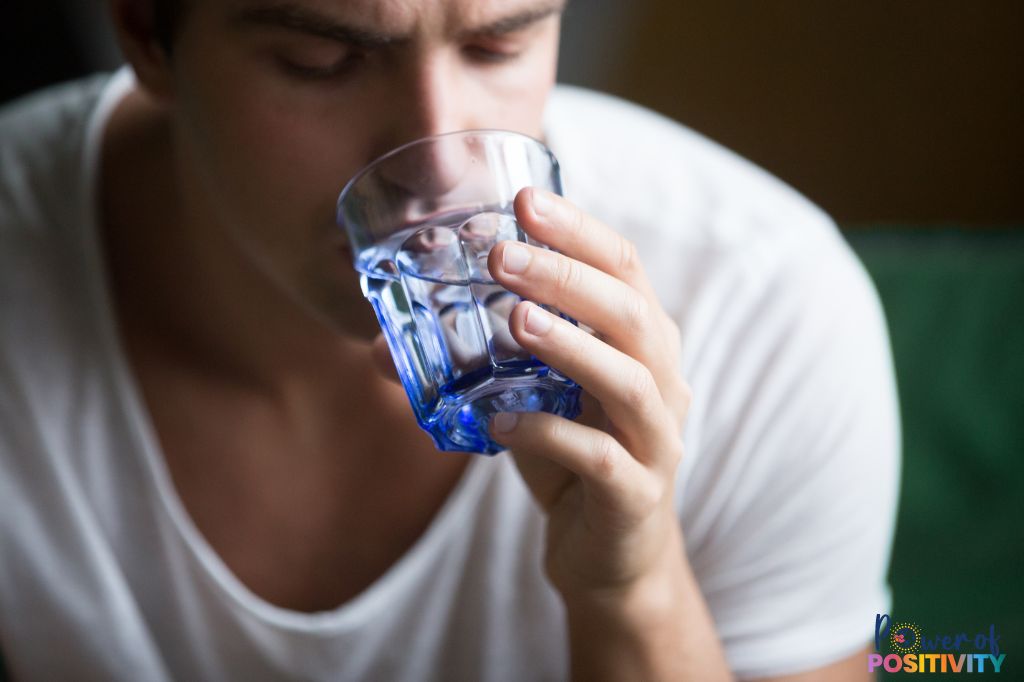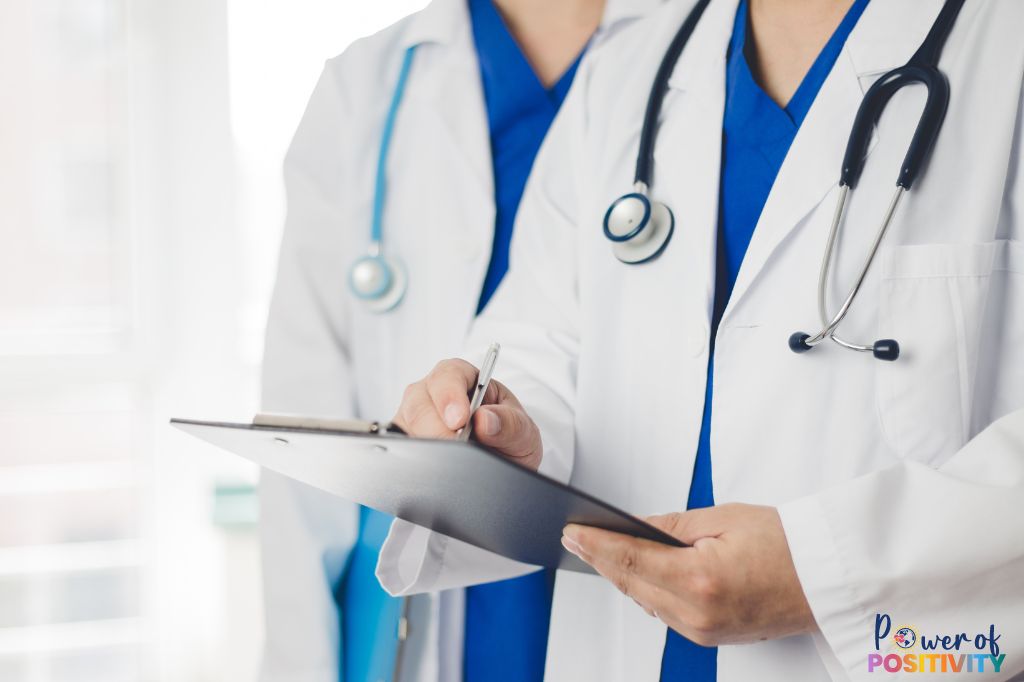Feeling drained, dizzy, or just not yourself? These are often signs that your body is crying out for hydration. Dehydration can sneak up on anyone, but the right remedies for dehydration can quickly restore your energy and well-being.
In this guide, we’ll dive straight into practical solutions that can turn things around quickly. Whether you need quick relief from mild dehydration or tips for keeping it at bay long-term, you’ll find all the remedies you need to stay hydrated and feeling your best.
By the end, you’ll have a clear understanding of the most effective remedies for dehydration that you can easily integrate into your daily routine. Say goodbye to discomfort and hello to vibrant health!
Key Takeaways
- 💧 Gradually sipping water and using electrolyte solutions are quick fixes for mild dehydration.
- 🍉 Foods like watermelon, cucumber, and homemade electrolyte drinks are effective natural remedies.
- 🚨 Severe signs like fainting, confusion, or no urine output require immediate medical care.
Quick Identification: Recognizing Dehydration Symptoms

Dehydration can manifest subtly at first, but recognizing the signs early is key to avoiding more severe health issues. Common symptoms to watch for include:
- Thirst and Dry Mouth: The first indicators your body needs fluids are often a parched mouth and a craving for water. If you’re already feeling thirsty, dehydration has likely started setting in.
- Dizziness and Fatigue: As dehydration progresses, blood volume decreases, leading to lower oxygen delivery throughout the body. This can cause light-headedness, dizziness, and fatigue, making it difficult to focus or stay active.
- Dark Urine: One of the easiest ways to spot dehydration is by checking your urine color. If it’s dark yellow or amber, your body is trying to conserve water, signaling that you need to hydrate immediately.
- Headaches and Confusion: Even mild dehydration can cause headaches as blood vessels constrict in response to fluid loss. In more severe cases, confusion and difficulty concentrating may develop
Recognizing these symptoms early allows for faster treatment, preventing the condition from escalating. The moment these signs are noticed, rehydrating with water or an electrolyte solution can quickly reverse the effects.
Waiting too long increases the risk of more severe complications, such as heat exhaustion, kidney issues, or even hospitalization.
By keeping an eye out for these symptoms and addressing them promptly, you can maintain your hydration levels and overall well-being.
Top 10 Home Remedies for Dehydration

When dehydration strikes, you don’t always need a fancy solution. The following home remedies are effective, easy, and made with ingredients you probably already have at home.
1. Watermelon and Cucumber
Watermelon and cucumbers are both over 90% water, making them fantastic for hydration. They also contain essential vitamins like A and C, which support your overall health while rehydrating. Snacking on these refreshing fruits is an easy way to boost your fluid intake.
2. Coconut Water
Coconut water is nature’s electrolyte drink. It’s rich in potassium and other essential minerals, making it great for replacing lost electrolytes without the high sugar content found in sports drinks. It’s a hydrator option that’s gentle on the stomach and perfect for mild dehydration.
3. Broth-Based Soups
Clear broths, like vegetable or chicken broth, offer a comforting way to rehydrate. They provide fluids while also replenishing lost electrolytes, especially sodium. To maximize their benefit, opt for broths with a balanced salt content to ensure proper hydration.
4. Oral Rehydration Solution (ORS)
A simple DIY oral rehydration solution can be made at home with 1 liter of water, 6 teaspoons of sugar, and ½ teaspoon of salt. This mixture is effective at restoring electrolyte balance, making it a go-to remedy for mild dehydration caused by vomiting or diarrhea.
5. Herbal Teas
Certain herbal teas, like ginger or chamomile, can soothe while hydrating. Ginger tea is particularly good for nausea, while chamomile tea provides a calming effect, making it easier to sip and retain fluids.
6. Electrolyte-Rich Smoothies
Blending hydrating fruits like berries, oranges, and bananas with a base like coconut water can create a nutrient-dense smoothie packed with natural sugars and electrolytes. This is a delicious way to rehydrate, especially post-exercise.
7. Yogurt
Yogurt is not only hydrating but also provides probiotics that can be beneficial if dehydration stems from gastrointestinal issues. Pairing yogurt with water-rich fruits like strawberries or peaches can enhance its hydrating effect.
8. Bananas with a Pinch of Salt
Bananas are high in potassium, a key electrolyte often lost during dehydration. Sprinkling a pinch of salt on a banana can further enhance electrolyte replenishment while being a quick and easy remedy.
9. Aloe Vera Juice
Aloe vera juice is hydrating and rich in vitamins and minerals. It also has anti-inflammatory properties, which can be helpful if dehydration is causing stomach discomfort. Just make sure to opt for pure aloe vera juice without added sugars.
10. Electrolyte Ice Pops
Freezing a homemade electrolyte solution or coconut water into ice pops is a fun and effective way to stay hydrated, especially for kids. This is particularly useful in hot weather or after intense activity.
These remedies not only help replenish fluids but also restore essential electrolytes, ensuring that you bounce back from dehydration quickly and naturally.
Addressing Dehydration in Specific Demographics

Dehydration affects certain groups differently, requiring tailored approaches. Here’s a concise guide:
Children and Infants
- Oral Rehydration Solution (ORS): ORS is safe and effective for kids, helping replace fluids and electrolytes quickly.
- Avoid Sugary Drinks: Drinks like sodas and juices can worsen dehydration, especially with diarrhea.
- Small, Frequent Sips: Encourage small, steady sips of ORS or water to improve fluid retention.
Elderly
- Regular Fluid Intake: Offer fluids frequently, even without thirst. Water, herbal teas, and soups work well.
- Monitor Hydration: Use reminders and check for signs like dark urine and dry skin.
- Hydrating Foods: Include water-rich foods like soups and fruits to supplement fluid intake.
Athletes
- Prehydration: Drink 16–20 ounces of water or a sports drink two hours before exercise.
- During Exercise: Consume 6–12 ounces of water or an electrolyte drink every 15-20 minutes.
- Post-Exercise Rehydration: Replenish with water and electrolyte drinks to recover lost fluids.
Preventative Strategies for Chronic Dehydration
Maintaining proper hydration consistently is crucial, especially for those who are more prone to chronic dehydration due to lifestyle, environment, or health conditions.
Implementing the following strategies can help keep dehydration at bay:
- 🎯 Daily Hydration Habits: Set goals based on your needs. Use reminders or apps to track and ensure regular water intake.
- ☀️ Adjust for Climate and Activity: Drink more in hot weather or during physical activity. For intense exercise, add electrolyte drinks to your routine.
- 🥒 Hydrating Foods: Include water-rich foods like cucumbers, melons, and soups to boost daily hydration.
- 📋 Monitor Hydration: Check your urine color (light yellow is ideal). Keep a hydration log to track and adjust intake.
- ⚖️ Balance Electrolytes: Ensure your diet includes sodium, potassium, and magnesium to support proper hydration.
By consistently applying these strategies, you can prevent dehydration and maintain optimal health every day.
When Home Remedies Aren’t Enough: Seeking Medical Attention

In some cases, dehydration can become serious and home remedies might not suffice. Recognizing when to seek medical attention is crucial.
Signs of Severe Dehydration
- Rapid Pulse and Breathing: A fast heart rate or breathing can indicate that your body is struggling to compensate for fluid loss.
- Fainting or Confusion: If dehydration leads to fainting, severe dizziness, or confusion, it has likely reached a critical point.
- No Urine Output for Hours: Not urinating for 8+ hours or producing very dark urine is a strong sign that your body is in distress and needs immediate intervention.
When to Seek Emergency Care
If these symptoms arise, go to the ER. IV fluids are often needed to quickly restore hydration, especially if oral fluids aren’t enough.
Medical monitoring of electrolytes and vital signs ensures recovery and prevents serious complications like kidney failure or shock.
FAQs
Can dehydration cause long-term health issues?
Yes, chronic dehydration can lead to kidney stones, kidney damage, and joint problems over time. It can also affect skin elasticity and cognitive function.
Are there specific times of day when dehydration is more likely to occur?
Dehydration is more common in the morning due to fluid loss during sleep and after intense physical activity when sweat depletes body fluids.
How does alcohol contribute to dehydration?
Alcohol increases urine production, leading to fluid loss. Drinking alcohol without sufficient water intake accelerates dehydration.
Final Thoughts
Staying hydrated is one of the simplest yet most impactful things you can do for your health. Whether you’re enjoying hydrating snacks or sipping an electrolyte drink, small, consistent habits keep you energized and balanced.
Remember, taking care of your body is the first step toward feeling good and living fully. So, keep those water bottles close and make hydration a natural part of your daily routine—you’ll thank yourself for it!
Hydration is the foundation—now, let’s build on it together!

















